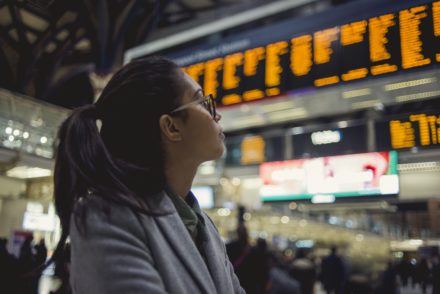SPONSORED POST

Everyone knows Britain’s railways need to change, especially the industry itself. For too long, passengers have faced a service which has not been up to standard. The fares system is one such issue that is not working for passengers.
Britain has transformed in recent years, through the evolution of new, flexible working patterns and the dawn of a technological age. However, the way people are expected to buy tickets and travel on our railways has not changed since the 1990s.
Regardless of how the industry is structured and who is responsible for running it, the fares system needs to change. That’s why the rail industry is launching ‘Easier Fares for All’ – a set of proposals to update regulation which could radically overhaul how fares work to create a system that is fit for purpose.
The current rules and regulations guiding fares were written over twenty years ago and have not been updated since, creating a system that is confusing and unfit for purpose. Passengers are expected to navigate a rigid and complex system, which often prevents them from accessing the best deals and penalises those who don’t work a regular 9-to-5.
The proposals are the result of responses to the industry’s ‘Easier Fares’ consultation, the biggest ever listening exercise on rail fares, conducted in partnership with the independent passenger watchdog, Transport Focus. The feedback was overwhelming, and unequivocal. Of the almost 20,000 people who took part, including representatives from businesses and passenger groups, more than 80% wanted to see the fares system changed.
When buying a weekly season ticket, many customers feel they are forced to guess how many journeys they might make and at what times, which is often impossible to judge. In a world where people are increasingly working in flexible roles, this is an example of where the fares system has not kept up. These commuters are often forced to overbuy and underuse their season tickets, without the opportunity to save money travelling off-peak when life allows them to.
The problems are also felt along long-distance routes. People flagged that they often felt they had to cut their activities short to catch the ‘right’ train, or else watch the clock until a certain type of ticket becomes valid.
Fares need to meet modern working and travel patterns, providing flexibility if plans change. Rolling out a single-leg structure could enable the whole country to benefit from a pay-as-you-go ‘tap-in-tap out’ system, with access to 7-day price capping, similar to that currently operating in London. Commuters could mix and match their tickets and save money for working people as they commute to work.
At the same time, inter-city travellers could see a far larger range of cheaper walk-up fares and potential reductions in their peak time-time travel, better spreading demand and reducing overcrowding by up to a third on some of the busiest long-distance services.
Reform could also support local political leaders having more control over their transport systems, where relevant powers are devolved, enabling them to coordinate train fares alongside other local transport.
These proposals to change fares are based around one simple core premise: customers should only pay for the travel they need and always get the best value fare where and when they buy it.
Based on the consultation responses, the industry thinks this change should begin with a move away from a system of fixed packages of pre-prescribed fares to one where single journeys serve as the basic building blocks. This would be akin to moving from a Spaghetti Junction to a Manhattan-style grid system – logical and easy to navigate for everyone.
However, the rail industry cannot rebuild the system without the support of government, with whom they want to work to update the necessary regulations and to carry out a series of real-world trials to test their proposals.
Completing this preparatory work now, before the on-going Williams Review reports, will enable a reformed system to be fully rolled out within 3-5 years.
The rail industry has listened, it’s time to give rail customers what they want. A simple to use, transparent and trusted fares system. Easier fares for all.




More from LabourList
‘After years of cuts, Labour’s local government settlement begins to put things right’
‘The Sherriff of Wild Westminster: what must change in elections bill’
‘The hope that kills you’: Reflections from the final day in Gorton and Denton